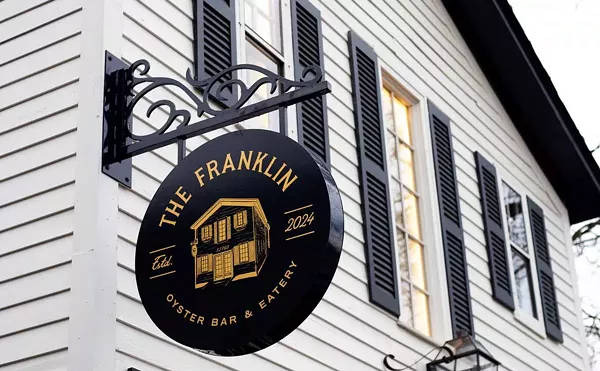
Audio By Carbonatix
[
{
"name": "GPT - Leaderboard - Inline - Content",
"component": "35519556",
"insertPoint": "5th",
"startingPoint": "3",
"requiredCountToDisplay": "3",
"maxInsertions": 100,
"adList": [
{
"adPreset": "LeaderboardInline"
}
]
}
]
CRITICAL MASS
Here is what some restaurant critics say about their work: It isn’t fun.
They work weekends, and spend a lot of time on the phone making reservations, canceling reservations and keeping track of their fake names.
Phyllis Richman, food critic for the Washington Post, says the job is "invasive" because "it’s something you devote your whole body to."
It’s a lot of responsibility, which they take very seriously. Ruth Reichl, until recently from the New York Times, says, "I wake up in the middle of almost every night before a review is printed, agonizing over where the mistakes are."
Jonathan Gold, critic for L.A. Weekly, says, "I probably get food poisoning more than anybody in Los Angeles."
Doesn’t sound like fun.
Dining Out: Secrets from America’s Leading Critics, Chefs and Restaurateurs , by Andrew Dornenburg and Karen Page (Wiley, $29.95, 338 pp.), discusses the context in which culinary art is received and judged.
Perhaps because of Dornenburg’s background as a chef, Dining Out is more about the tension between restaurant critics and their subjects. The authors reveal their purpose – and their bias – when they ask: "How had these individuals been deemed worthy of pronouncing judgments on fledgling restaurants?"
Interviews with three dozen critics form the core of this book; they answer an assortment of questions: What are your qualifications? How often do you visit a restaurant? How do you maintain anonymity? What criteria do you use to judge a restaurant? What do the stars mean?
The emphasis is on fairness to the restaurant, while too little is said about the critic’s responsibility to readers. Critics object to the fawning attention they get when they are recognized – what about the average Joe?
The authors don’t mention the famous episode when Ruth Reichl dined incognito at Le Cirque and was treated like dirt. Both critics and restaurateurs suggest that to improve one’s chance of a good experience, one should eat out often enough to become familiar at one’s favorite restaurants.
Here, the critics don’t get the last word. The book’s second section focuses on chefs and their opinions of restaurant critics. Whoa!
In the opinion of the country’s leading restaurateurs, the country’s leading restaurant critics are unqualified and ignorant. One restaurateur suggests that critics should not describe individual dishes but publish the entire menu, allow the chef or owner, or both, rebuttal space, and lecture at the Culinary Institute of America about their philosophy of criticism. Another thinks critics should be licensed.
In the end, both the critics and the chefs in this book sound self-serving. Instead of revealing real secrets, Dining Out fails to do anything more than report on the state of restaurant criticism. Which, by the way, is a lot of fun. –Elissa Karg
TREATS
Friends & Neighbors of Ferndale hosts the 3rd Annual Ferndale Woodward Avenue Pub Crawl this Saturday, July 31. The walking tour starts at 8:30 p.m. at the corner of West Breckenridge and Woodward, and carries on from there. Call 248-545-1435 for more info. … Zanzibar (216 State St., Ann Arbor, 734-994-7777) has a new summer menu. For complimentary tastes of some of the new items, visit the restaurant between 5 p.m. and 8 p.m. each Wednesday for the rest of the summer.





